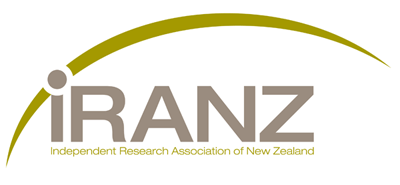Public transport and smarter mobility in our growing cities
Public transport has been widely established as a more efficient solution to congestion, but instead of improving mass transport we keep adding more ‘grey space’. Photo: WSP Opus Research.
By Dr Jared Thomas, Research Manager, Behavioural Sciences, WSP Opus Research
Through a range of studies on multi-modal customer needs, we are developing a greater understanding of how future generations of New Zealanders want to travel. One of our key findings is that there is massive suppressed demand for public transport, and even greater suppressed demand for cycling and walking. Unsurprisingly, the immediate challenges for public transport are around greater convenience, with more frequent services and wider locations of coverage. However, the greatest demand for mode shift is for social and recreational trips, which has traditionally been where the car has dominated and where resources have been focused. Working alongside the future-focused New Zealand Transport Agency, our findings have contributed to their longer-term, customer-centric strategy.
Our recent work with the Singapore Land Transport Agency has revealed a great snapshot of future challenges as cities grow, with
Just as the evolving challenges for mass transport are social ones, social science is also evolving to offer better ways to find out what our future users want. New social science methods allow us to test the value of different mobility solutions before they are built. These range from in-depth experiential techniques like technology-enabled passenger “ride-alongs”, through to sophisticated techniques to quantify future demand, including the use of Interactive Computer-Aided Simulation Tools (ICAST).We use smarter ways to find out how people currently travel, how they would like to travel, and how to incentivise better ways to travel. This places people at the centre of the decision-making process, so that we are creating what matters for our future generations.
For further information about social science research techniques in transport, contact WSP Opus Research.
Dr Jared Thomas, Research Manager, Behavioural Sciences, at WSP Opus, recently presented his work at the March Speaker’s Science Forum hosted at Parliament’s Grand Hall by Dr Jian Yang, Chair of the Science and Education Select Committee. The science forum is a well-attended series of research presentations for Members of Parliament organised by The Royal Society of
Forum subjects later this year include “Production, protection and adding value” with Dr Armin Werner from Lincoln Agritech, “Big Data, Big Value” with Dr Young from MRINZ on using data to drive better medical practice and patient care, and “New Zealand’s space science” with Dr Greg Bodeker from the new Regional Research Institute CSST (Centre for Space Science Technology).
For a copy of Hamish and Jared’s presentation to The Speaker’s Science Forum, please download the PDF (7MB).
Date posted: 12 March 2017

